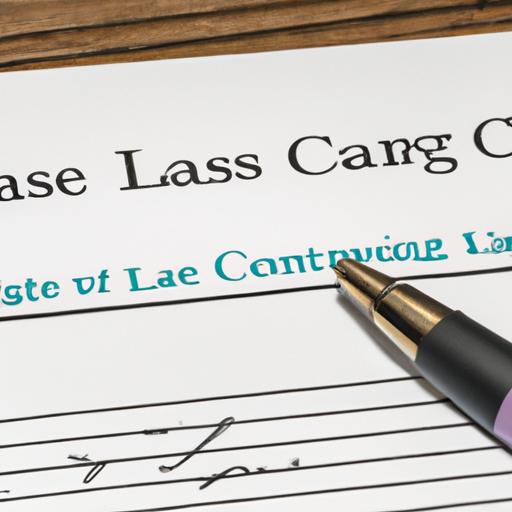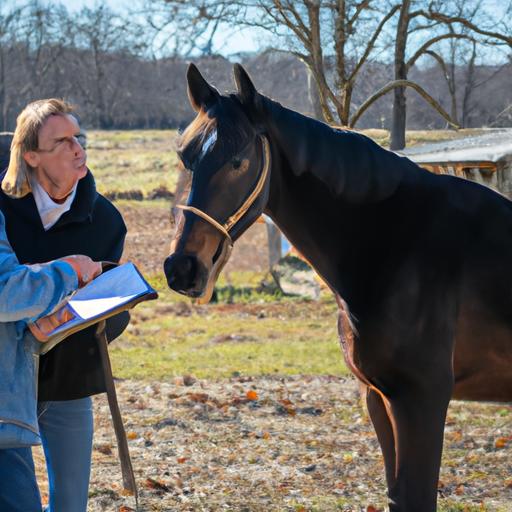Discover the crucial benefits of having a horse care lease contract. Ensure clarity, minimize disputes, and protect both lessor and lessee interests.
When it comes to horse care, there’s more to it than just feeding and grooming. As a horse owner or someone interested in leasing a horse, you understand the importance of providing proper care and attention to these magnificent creatures. That’s where a horse care lease contract plays a crucial role in ensuring the well-being of your equine companion.
Why is a Horse Care Lease Contract Important?
Imagine this scenario: you’ve found the perfect horse to lease, and you’re excited to embark on this new journey. However, without a well-defined agreement in place, you may encounter various issues and misunderstandings down the line. A horse care lease contract is designed to prevent such problems and protect the interests of both the lessor and lessee.
By having a horse care lease contract, you establish clear guidelines and expectations regarding the horse’s care, responsibilities of each party, and financial obligations. It serves as a legally binding document that outlines the terms and conditions, providing a solid foundation for a harmonious partnership between the lessor and lessee.
Navigating the Parties Involved
In a horse care lease contract, it’s essential to understand the parties involved. The lessor refers to the horse owner, while the lessee is the individual who will be responsible for the day-to-day care of the horse during the lease period. This could be someone looking to gain experience or enjoy the companionship of a horse without the full ownership commitment.
As the lessor, you have the peace of mind knowing that your horse will receive the care it deserves, while the lessee benefits from the opportunity to bond with and enjoy the horse without the financial burden of ownership. Establishing this partnership through a formal contract ensures that both parties are on the same page, fostering trust and a mutually beneficial relationship.
In the next section, we will delve deeper into the key components that make up a comprehensive horse care lease contract. From ownership and lease terms to responsibilities and financial obligations, we’ll cover all the crucial aspects you need to consider. So, let’s saddle up and explore the world of horse care lease contracts together!
Key Components of a Horse Care Lease Contract

As you delve into the world of horse care lease contracts, it’s important to understand the key components that make up a comprehensive agreement. These components ensure that all parties involved are clear on their roles, responsibilities, and obligations. Let’s explore the crucial elements that should be included in a horse care lease contract:
Establishing Ownership and Lease Terms
The first step in creating a horse care lease contract is to establish ownership and lease terms. This includes specifying the details of the horse being leased, such as its breed, age, and registration information. Additionally, the contract should outline the duration of the lease, whether it’s a short-term arrangement or a longer commitment.
Outlining Responsibilities of the Lessor and Lessee
To ensure a smooth and well-managed partnership, it’s important to outline the responsibilities of both the lessor and lessee. This includes tasks such as feeding, grooming, exercise routines, and veterinary care. Clearly defining these responsibilities in the contract helps avoid misunderstandings and ensures the horse receives the proper care it needs.
Addressing Horse Maintenance and Care Guidelines
A horse care lease contract should also include specific guidelines for horse maintenance and care. This may involve detailing the type of feed and supplements to be provided, the frequency of farrier visits, and any necessary vaccinations or medical treatments. By addressing these guidelines, you can ensure that the horse’s health and well-being are maintained throughout the lease period.
Discussing Financial Obligations and Insurance Requirements
Financial obligations play a significant role in a horse care lease contract. The contract should clearly outline who is responsible for covering expenses such as feed, veterinary bills, and farrier costs. Additionally, it’s important to discuss insurance requirements, including liability insurance and coverage for any potential accidents or injuries that may occur during the lease period.
Including Liability and Indemnity Clauses
To protect all parties involved, it’s essential to include liability and indemnity clauses in the horse care lease contract. These clauses specify who is responsible for any damages or injuries that may occur while the horse is in the lessee’s care. By clearly defining these clauses, you can minimize potential disputes and ensure that everyone understands their legal obligations.
In the next section, we will explore the benefits of having a horse care lease contract. From ensuring clarity and transparency to minimizing disputes, these advantages highlight the importance of this essential document. So, let’s continue our journey into the world of horse care lease contracts!
How to Draft a Horse Care Lease Contract
When it comes to drafting a horse care lease contract, it’s vital to ensure that all parties involved are protected and that the agreement accurately reflects their needs and circumstances. Here are some key steps to follow when creating a comprehensive and tailored contract:
Consulting with an Equine Attorney or Professional
To ensure that your horse care lease contract is legally sound and covers all necessary aspects, it’s advisable to seek guidance from an equine attorney or professional. They have the expertise and knowledge to navigate the intricacies of equine law and can help you draft a contract that aligns with your specific requirements.
Identifying Specific Terms and Conditions
When drafting the contract, it’s essential to clearly identify and outline the terms and conditions that both the lessor and lessee must adhere to. This includes details such as lease duration, payment obligations, and any specific care instructions or restrictions for the horse. By being specific and thorough, you reduce the risk of confusion or disputes in the future.
Tailoring the Contract to Individual Needs and Circumstances
Every horse care lease is unique, as it involves different horses, owners, and lessees. Therefore, it’s important to customize the contract to accommodate individual needs and circumstances. Consider factors such as the horse’s age, health conditions, training requirements, and any additional services or responsibilities agreed upon between the parties. By tailoring the contract, you ensure that it accurately reflects the arrangement and sets clear expectations for all involved.
By following these steps and working closely with an equine attorney or professional, you can draft a horse care lease contract that covers all crucial aspects, provides clarity and transparency, and protects the interests of both the lessor and lessee. Remember, a well-crafted contract is the foundation of a successful and harmonious horse care lease agreement.
In the next section, we will conclude our exploration of horse care lease contracts, emphasizing their importance and encouraging horse owners and lessees to establish clear and comprehensive agreements.
Conclusion
In conclusion, a horse care lease contract is an essential tool for ensuring the well-being of your equine companion and establishing a clear agreement between the lessor and lessee. By defining the terms and conditions, responsibilities, and financial obligations, a well-structured contract provides clarity and transparency for both parties involved.
Having a horse care lease contract offers several benefits. Firstly, it ensures clarity and transparency in the agreement, leaving no room for ambiguity or misinterpretation. Both the lessor and lessee have a clear understanding of their roles and obligations, fostering a harmonious partnership.
Furthermore, a horse care lease contract minimizes potential disputes and misunderstandings. With clearly defined terms, any disagreements or issues can be resolved based on the agreed-upon guidelines, avoiding unnecessary conflicts.
Most importantly, a horse care lease contract protects the interests of both the lessor and lessee. It safeguards the well-being of the horse, ensuring that the proper care and maintenance guidelines are followed. Additionally, it outlines the financial obligations, insurance requirements, and liability clauses, offering a sense of security for both parties.
At Horsemasterypro.com, we understand the importance of a well-structured horse care lease contract. We encourage all horse owners and lessees to establish a clear agreement that prioritizes the health and happiness of these magnificent creatures. Whether you’re an experienced horse owner or embarking on your first lease, a comprehensive contract is a vital step towards ensuring a positive and fulfilling equine partnership.
So, don’t wait any longer – take the reins of responsible horse care and create a horse care lease contract that sets the foundation for a successful and enjoyable journey with your beloved equine companion.
Stay tuned to Horsemasterypro.com for more informative articles and resources on horse care, training, and everything equestrian-related. Together, let’s create a world where horses thrive and humans find joy in their partnership.


